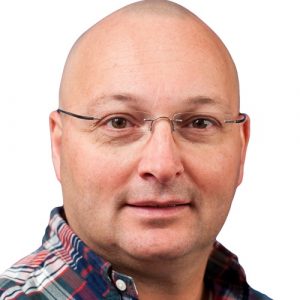
It is estimated that around 33-43% of people with MS have problems swallowing (also known as dysphagia). Current treatment options include dietary changes or compensatory techniques. Issues with swallowing can lead to choking, complications in the lungs due to inhaled food or drinks, dehydration, and in more severe cases, malnutrition. In more advanced stages of MS, eating and drinking can become unsafe and people are advised to stop eating and/or drinking and have to use to a feeding tube.
Speech pathologists have been able to treat swallowing disorders through targeted exercises, but research in this area for people with MS is limited. However, electrical stimulation of the muscles (neuromuscular electrical stimulation; NMES) has been used to improve swallowing functions in people with Parkinson’s and those that have suffered from a stroke.
With the help of this Incubator Grant, Dr Bogaardt and his team plan to run a small randomised controlled trial to determine if NMES helps improve swallowing in adults with MS. The results of this pilot study will help the researchers make evidence-based decisions about whether larger trials are needed, and could help determine future treatments to help with swallowing in people with MS.
Updated: 10 January 2018
Updated: 02 January, 2018

